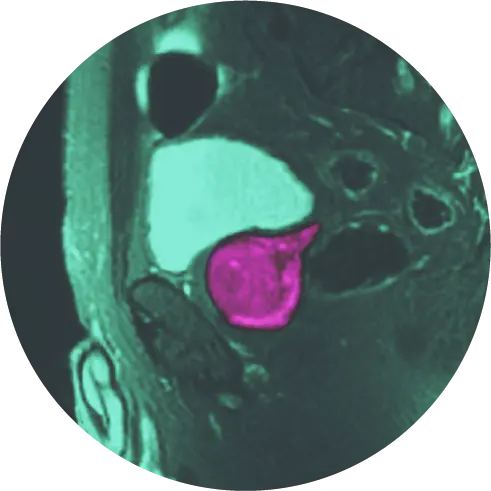Turning 40 years of age begets a number of rites of passage. For men of a certain age, and/or those with a history of cancer or other ailments in their family, it may be time to discuss prostate cancer screening with their primary care physician (PCP). In most cases, the PCP acts as the first step in the assessment process for men who fall under the current guidelines of those who would benefit from a prostate-specific antigen (PSA) screening. As such, the PCP has an important responsibility to the patient to impart hitherto life-saving information regarding the very real threat of prostate cancer and the magnitude of early detection.
The importance of this discussion between doctor and patient cannot be understated. Early detection of prostate cancer saves lives, without question: there is a 40% reduction in mortality among men who undergo a PSA screening.1 It is, of course, a reasonable and logical assumption that early screening for cancers and other diseases can often engender more treatment options that may be less invasive than those intended for more advanced cases. And because some early cancers may have no noticeable signs or symptoms, screenings like the PSA test can save lives before a person is even aware that he needs saving.
And yet, only 29% of men over 40 have actually had a PSA test.1 Given that prostate cancer is the second leading cause of death for American men, this statistic is vexatious and presents an obvious opportunity for PCPs to turn the tide and encourage more men to undergo early screening. The impetus is even greater in regard to reaching black patients, as their demographic is less likely to be offered PSA screening and definitive treatment, and 27% less likely than their white counterparts to receive any treatment whatsoever.2 PCPs can and should serve as a shepherd to increase screening rates and decrease mortality to this disease.
The decision to undergo a PSA test is reached primarily following a thorough discussion between PCP and patient in order for the latter to reach the most informed decision possible. Factors considered are dependent upon the individual patient, such as his age, race, family history, any known genetic mutations, and diet. As with screenings for many other cancers, the risk/benefit ratio of the PSA test varies, depending on the individual patients overall health and cancer risk factors. In order to help the patient make an informed decision about undergoing the PSA test, it behooves the provider to educate themselves on the subject, become familiar with guidelines, statistics, and other references in order to serve as a well-informed participant in the discussion. While there are many conflicting positions in regard to current guidelines and testing measures, the question of whether to undertake the PSA must be considered subjectively, patient by patient. In the end, research proves that there’s more comfort in knowing that things are normal than speculating.?3
Cancer continues to understandably be a frightening subject for anyone to consider on a personal level, so it is of vital importance to make time to patiently encourage and answer any questions or concerns the patient may have in regard to the PSA test, possible outcomes, etc. While some patients are eager to take the bull by the horns, ask questions, and take charge of their health now to expectantly mitigate conditions they may have or be at risk of developing, others cope with frightening, uncomfortable specters like cancer by proverbially burying their head in the sand. This is a coping mechanism that is difficult to break, but PCPs have an opportunity to put a dent in the wall at the very least.
Still other patients fall somewhere in the middle of these two examples, with pensive fear combined with a receptiveness to transparent, accurate information. Regardless of a patients initial stance upon entry to the process, it is imperative to calmly, clearly, and compassionately explain the screening practice to the patient regardless of the time involved as it will almost certainly set the tone for patient perception of the process going forward. Any specialist further down the healthcare continuum, such as a radiologist, oncologist, urologist, surgeon, etc, may augment this tone for better or worse for the patient, but this initial discussion between PCP and patient can serve to alleviate fears and provide accurate, comprehensible information to the patient at the onset of his journey in the prostate cancer screening process.
1. National Cancer Institute. Cancer Trends Progress Report
2. Moses, Kelvin A et al. ?Racial/Ethnic Disparity in Treatment for Prostate Cancer: Does Cancer Severity Matter?.? Urology vol. 99 (2017): 76-83. doi:10.1016/j.urology.2016.07.045
3. https://onlinelibrary.wiley.com/doi/full/10.1111/ijcp.12745




